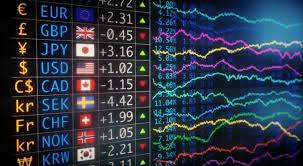
Trading Forex vs Stocks: Which is Right for You?
In the world of trading, investors often find themselves at a crossroads between two major markets: trading forex vs stocks Trading PH and stocks. Each market has its unique characteristics, strategies, and potential rewards and risks. Understanding these differences is crucial for making informed trading decisions. This article will explore various aspects of Forex trading and stock trading, providing insights to help you determine which avenue aligns best with your goals and risk tolerance.
1. Introduction to Forex and Stocks
Forex, short for foreign exchange, is the global market for trading national currencies against one another. It is a decentralized market that operates 24 hours a day, five days a week, allowing traders to exchange currency pairs like EUR/USD or GBP/JPY. On the other hand, stock trading involves buying and selling shares of publicly traded companies on stock exchanges like the New York Stock Exchange (NYSE) or NASDAQ. While both trading styles offer the potential for profit, they cater to different trading approaches and strategies.
2. Market Structure
The Forex market is the largest financial market in the world, with a daily trading volume exceeding $6 trillion. Its decentralized nature means that there is no central exchange; instead, trading is conducted over-the-counter (OTC) through a network of banks, brokers, and financial institutions. This gives traders the flexibility to enter and exit trades at any time, making Forex appealing to day traders and scalpers.
In contrast, stock trading occurs on formal exchanges, where transaction processes follow set regulations and timings. The opening and closing hours of stock markets limit trading opportunities to specific hours on business days. As a result, stocks may attract investors looking for long-term growth and stability, while Forex appeals to those seeking liquidity and quick price movements.
3. Volatility and Risk
Forex markets tend to be more volatile than stocks. Price fluctuations can happen rapidly due to economic news, geopolitical events, and changes in monetary policy. This volatility presents opportunities for significant gains but also carries the risk of substantial losses. Traders in the Forex market must be adept in managing their risk—they often use stop-loss orders and position sizing strategies to safeguard profits and limit losses.
Stock markets can also exhibit volatility, but they are generally characterized by slower and steadier price movements. The risk in stock trading often comes from company-specific events, such as earnings reports, management changes, or industry disruptions. Stocks offer the potential for long-term capital appreciation and dividends, which can attract investors with a lower risk tolerance focusing on wealth accumulation over time.
4. Leverage
Leverage is a double-edged sword in trading, providing opportunities for greater profits while also amplifying risks. In Forex trading, leverage ratios can go as high as 100:1 or more, which means traders can control a large position with a relatively small amount of capital. For instance, with a 100:1 leverage, a trader can control $100,000 in currency with just $1,000 in their trading account. While this can enhance the potential for high returns, it also increases the risk of significant losses.
Stock trading typically offers lower leverage—often in the range of 2:1 to 4:1, depending on the broker and regulatory environment. While lower leverage reduces potential risks, it can also limit profit margins, making it less attractive for those looking for rapid gains.

5. Trading Strategies
When it comes to trading strategies, Forex and stock trading require different approaches. Forex traders often rely on technical analysis, using charts and indicators to make short-term trades based on price movement. Scalping, day trading, and swing trading are popular strategies in the Forex market, where traders take advantage of small price changes. Moreover, fundamental analysis focusing on economic indicators, interest rates, and geopolitical events also plays a critical role in Forex trading.
On the other hand, stock traders often employ a mix of technical and fundamental analysis, studying financial statements, earnings reports, and market trends to make informed long-term investment decisions. Strategies like value investing, growth investing, and dividend investing are prominent in stock trading. Each approach has unique requirements for research, analysis, and execution.
6. Costs and Fees
Costs associated with trading can significantly impact overall profitability, and both Forex and stock trading have their fee structures. In Forex trading, costs typically come in the form of spreads, which represent the difference between the buying and selling price of a currency pair. Brokers may also charge a small commission on trades, especially for smaller accounts or specialized accounts that offer spreads. The cost of trading Forex is generally lower due to the high liquidity and the number of available brokers.
In stock trading, investors may face commissions for buying and selling shares, which can vary widely depending on the broker and the structure of their fee schedule. Additionally, stocks may incur other fees such as exchange fees or taxes on capital gains. In the past few years, many brokers have moved towards commission-free trading, which has altered the cost landscape for stock investors. Regardless of the market, traders should carefully evaluate costs to ensure they align with their trading strategies and account size.
7. Regulation and Security
The regulation of Forex and stock trading differs significantly. Stock markets are heavily regulated, ensuring a level of transparency and security for investors. Regulatory bodies such as the Securities and Exchange Commission (SEC) in the United States oversee stock exchanges, aiming to protect investors from fraud and ensure market integrity.
Conversely, Forex is less regulated due to its decentralized nature. While there are regulatory authorities like the Commodity Futures Trading Commission (CFTC) and the National Futures Association (NFA) in the US, many Forex brokers operate in jurisdictions with looser regulations. This lack of comprehensive regulation can pose risks to traders, making it essential to choose reputable brokers with appropriate safeguards in place.
8. Making the Choice: Forex or Stocks?
Your decision to trade Forex or stocks should align with your trading style, risk tolerance, and investment goals. If you prefer high volatility, quick trades, and the opportunity to trade around the clock, Forex may be the ideal choice for you. It can be suitable for those willing to invest time in understanding currency dynamics and trading strategies.
On the other hand, if you are a long-term investor focused on building a portfolio of assets, stocks might be more aligned with your objectives. Stocks offer companies’ ownership with potential capital appreciation and regular dividends, making them appealing for those looking to grow their wealth over time.
Conclusion
Both Forex and stock trading present unique opportunities and challenges. By evaluating the differences in market structure, volatility, leverage, trading strategies, costs, and security, you can make a more informed choice that suits your financial goals and trading preferences. The best approach may even involve diversifying your investments across both markets to mitigate risks and maximize potential returns.

